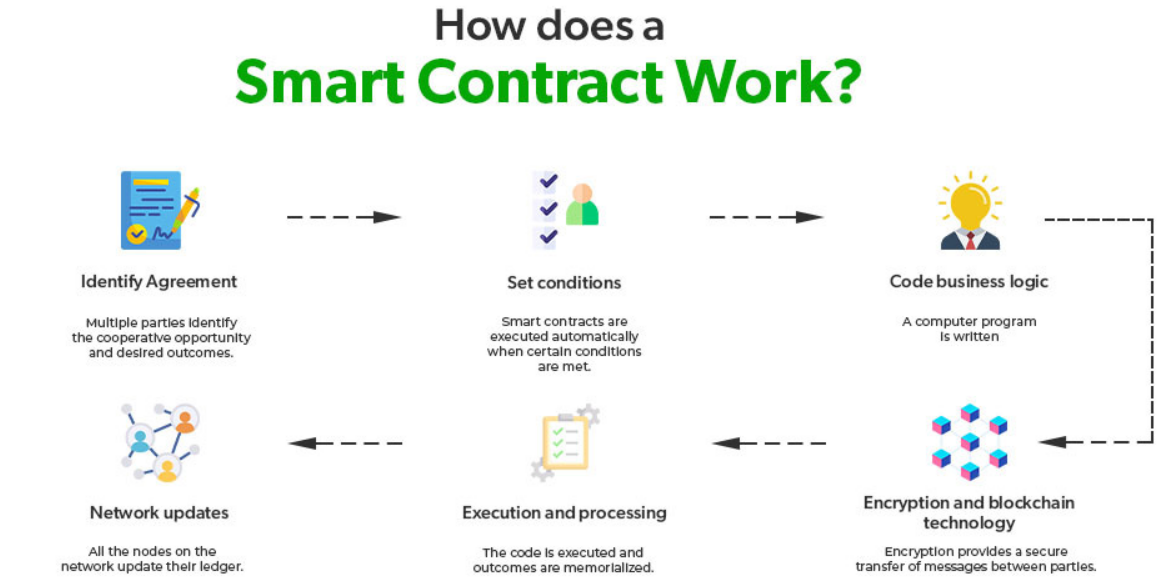
In the vast expanse of the digital universe, Web3 illuminates the path toward genuine user empowerment. It envisions an internet where users regain control over their data, navigating through the digital corridors with the assurance that their information is securely encrypted and autonomously managed.
Web3, while being a technological phenomenon, also emerges as a catalyst for sustainable development within the digital space. It sparks conversations and innovations aimed at reducing the environmental impact of blockchain technologies, promoting the adoption of energy-efficient consensus mechanisms, and ensuring that the digital future is environmentally sustainable.
We shall traverse through the multifaceted dimensions of Web3, exploring its core components, delving into its implications for marketing strategies, and unraveling the myriad of opportunities it unfolds for brands and marketers in the digital age. This guide aims to illuminate the path for marketers, brands, and businesses, providing insights and perspectives to navigate through the enthralling world of Web3.0 marketing.
Web3 Marketing: Bridging Brands with the New Web
Understanding Web 3.0 Marketing
Web3 marketing represents a novel paradigm in the digital marketing landscape, intertwining the innovative technologies of Web3 with traditional marketing strategies to forge a new era of user-centric, transparent, and secure promotional activities. It is an approach that leverages the foundational principles of the Web3, which encompasses blockchain technology, smart contracts, cryptocurrencies, and decentralized applications (DApps), to create, implement, and optimize Web3 public relations (PR) strategies.
In the realm of Web3.0 marketing, brands, and marketers navigate through a digital space, where data ownership and control are reverted back to the users, transactions are facilitated through cryptocurrencies, and marketing activities are governed by decentralized protocols and smart contracts. It is a space where marketing strategies are not only tailored to promote products or services but are also designed to foster direct and authentic engagements with consumers within a secure and transparent digital environment.
The inception of digital marketing is not merely a technological transition but a philosophical reorientation in the way brands approach, engage, and build relationships with consumers. In the traditional Web2 environment, brands often relied on centralized platforms and data aggregators to target, reach, and interact with their audience. These platforms, while providing extensive reach and data analytics, often became gatekeepers of user data and interaction, sometimes overshadowing the direct relationship between brands and their consumers.
Web3 marketing, on the other hand, dismantles these centralized gateways, enabling brands to interact directly with their audience within a decentralized framework. It empowers consumers to have control over their data, choose their engagement level, and interact with brands on their terms, thereby fostering a relationship that is built on trust, transparency, and mutual value exchange.
Core Components of Web3 Marketing
Core Web3.0 marketing components forge the framework that allows brands to navigate through the digital landscape. These components not only serve as the technological bedrock but also embody the philosophical ethos of Web3, intertwining advanced technologies with principles of decentralization, transparency, and user empowerment.
Blockchain Technology
Blockchain technology emerges as the cornerstone of Web3 marketing, providing a ledger that ensures transparency, security, and immutability of data. It enables brands to facilitate transactions, verify authenticity, and ensure the integrity of data without the need for centralized intermediaries. In the context of marketing, blockchain allows for transparent ad spending, verifiable supply chains, and authentic user engagement, thereby building a foundation of trust between the brand and its consumers.
Smart Contracts
Smart contracts play a pivotal role in automating and validating contractual obligations within the web. These self-executing contracts, governed by predefined rules and executed on the blockchain, ensure that agreements are adhered to and transactions are automatically facilitated upon meeting specified conditions. For marketers, smart contracts enable automated reward distributions, enforce partnership agreements, and ensure transparent and compliant ad placements, thereby enhancing efficiency and reliability in marketing activities.

Cryptocurrency Transactions
The integration of cryptocurrencies into Web3 marketing opens avenues for financial transactions, enabling brands and consumers to engage in financial activities without relying on traditional banking systems. It allows for the facilitation of microtransactions, enables global financial inclusivity, and provides a mechanism for brands to transact, reward, and incentivize within the ecosystem. Cryptocurrencies also enable brands to explore innovative pricing, selling, and reward models, thereby enhancing flexibility and inclusivity in financial interactions.
Tokenization and Loyalty Programs
Tokenization allows brands to create their own digital assets and tokens, which can be utilized to incentivize, reward, and engage consumers. These tokens can represent various forms of value, including loyalty points, access tokens, or even ownership of digital and physical assets. Through tokenized loyalty programs, brands can enhance consumer engagement, foster brand loyalty, and facilitate value exchange in a secure and transparent manner, thereby building a community that is actively engaged and rewarded for its participation.
DApps and Platforms
DApps provide a space for brands to interact directly with their consumers without the interference of centralized intermediaries. These platforms, built on blockchain technology, ensure that user data is controlled by the users themselves and interactions are direct and authentic. For marketers, DApps provide a platform to launch campaigns, engage with consumers, and facilitate transactions in a manner that is secure, direct, and not governed by centralized algorithms, thereby enhancing authentic and mutually beneficial interactions.
Non-Fungible Tokens (NFTs)
NFTs have revolutionized the concept of digital ownership and uniqueness, providing a mechanism for brands to create, sell, and validate the ownership of unique digital assets. In marketing, NFTs can be utilized to create unique digital collectibles, verify the authenticity of digital assets, and provide exclusive access to token holders, thereby creating exclusivity, authenticity, and innovative engagement strategies.
Advantages of Adopting Web3.0 Marketing
The advent of Web3 introduces a myriad of advantages that transcend traditional boundaries, offering brands a unique blend of technological innovation and ethical practices.
Enhanced Trust and Transparency
Web3 marketing inherently fosters a transparent environment where every transaction and data exchange is recorded on a blockchain, ensuring verifiability and immutability.
- This transparency builds trust among consumers as they can verify transactions, validate the authenticity of products, and engage with brands with the assurance that their interactions are genuine and secure.
- For brands, this transparency ensures that marketing spending, campaign performance, and consumer interactions are verifiable, reducing the risk of fraud and enhancing accountability.
Direct Peer-to-Peer Interactions
The decentralized nature of Web3 enables direct peer-to-peer interactions between brands and consumers, eliminating the need for intermediaries and centralized platforms.
- This direct interaction allows brands to build authentic relationships with their audience, understand their preferences without relying on third-party data, and create personalized experiences that resonate with the consumers.
- For consumers, direct interactions with brands ensure that their data is not exploited by intermediaries and that their engagement is valued and rewarded directly by the brands.
Tokenization and Innovative Loyalty Programs
Web3.0 marketing allows brands to explore the realm of tokenization, creating their own digital assets and tokens that can be used to incentivize and reward consumers.
- Through tokenized loyalty programs, brands can create innovative reward mechanisms, provide exclusive access to token holders, and foster a sense of community and ownership among consumers.
- This tokenization not only enhances consumer loyalty and engagement but also provides brands with a mechanism to raise capital, explore new revenue streams, and innovate within the decentralized finance space.
Web3 Marketing Tips for Businesses
Implementing Web3 marketing involves navigating through the decentralized digital landscape, leveraging innovative technologies, and crafting strategies that resonate with the ethos of the Web3 community.
Understanding the Web3 Ecosystem:
- Acquiring knowledge of blockchain technology, smart contracts, and decentralized applications (DApps).
- Exploring the dynamics of cryptocurrencies, tokenization, and Non-Fungible Tokens (NFTs).
- Navigating through decentralized platforms and communities within the Web3 space.
Aligning with Web3 Principles:
- Ensuring strategies are transparent, decentralized, and user-empowered.
- Upholding ethical practices and ensuring compliance with regulatory norms.
- Respecting user privacy and data ownership within the decentralized web.
Leveraging Technological Innovations:
- Integrating blockchain technology to ensure transparency and security in transactions.
- Utilizing smart contracts to automate and validate contractual obligations.
- Employing tokenization and cryptocurrencies to facilitate transactions and incentivize engagement.
Engaging with Decentralized Platforms and DApps:
- Identifying and engaging with relevant decentralized platforms and communities.
- Utilizing DApps to facilitate secure and transparent interactions and transactions.
- Ensuring direct and authentic engagement with users within decentralized platforms.
Implementing Tokenization and Cryptocurrency Strategies:
- Developing tokenized loyalty and reward programs to incentivize user engagement.
- Facilitating transactions and rewards through cryptocurrencies.
- Ensuring secure, transparent, and compliant financial transactions within the decentralized web.
Innovating with NFTs:
- Creating and launching NFT campaigns to engage and provide unique value to users.
- Leveraging NFTs for exclusive access, rewards, and authentic digital ownership.
- Ensuring the authenticity and exclusivity of digital assets within the NFT space.

Building and Nurturing a Decentralized Community:
- Fostering a community where users are active contributors and co-creators of value.
- Engaging with the community through forums, DAOs, and collaborative Web3 social media platforms.
- Ensuring that the community is valued, rewarded, and empowered within the decentralized space.
Measuring and Optimizing Strategies:
- Implementing mechanisms to track, analyze, and measure the impact of Web3.0 marketing.
- Adapting and optimizing strategies based on insights, feedback, and evolving trends within the Web3 ecosystem.
- Ensuring continuous improvement and innovation in strategies within the dynamic Web3 space.
Crafting a journey through Web3 marketing involves continuous learning, adapting, and innovating, ensuring that the brand not only resonates but also thrives and co-creates value within the decentralized digital ecosystem.
Challenges and Solutions in Web3 Marketing
Navigating through the decentralized realms of Web3 Marketing, while laden with opportunities, also presents its own set of challenges. These challenges, rooted in technological complexities, regulatory uncertainties, and user adoption barriers, necessitate strategic solutions that ensure the seamless and ethical implementation of Web3.0 marketing.
Web3 Challenges
- Technological Complexity: The intricate and nascent nature of blockchain technology and smart contracts can be daunting for brands and marketers unfamiliar with the space.
- Regulatory Uncertainties: The evolving and uncertain regulatory landscape for cryptocurrencies, tokens, and decentralized platforms poses compliance challenges.
- User Adoption: Despite its growth, the adoption of Web3, cryptocurrencies, and decentralized platforms among the general populace is still in its early stages.
- Security Concerns: The decentralized web, while secure, is also susceptible to technological vulnerabilities, scams, and fraudulent activities.
- Interoperability Issues: Ensuring seamless interactions and transactions across various blockchains and decentralized platforms can be technologically challenging.
Web3 Solutions
- Educational Initiatives: Implementing educational initiatives to enhance the knowledge and proficiency of marketers and consumers in the Web3 space.
- Strategic Compliance: Engaging with legal experts and regulatory advisors to navigate through the regulatory landscape and ensure compliance.
- User-Centric Approaches: Developing user-friendly interfaces, simplified user experiences, and supportive onboarding processes to enhance user adoption.
- Enhanced Security Protocols: Implementing robust security protocols, conducting regular audits, and ensuring transparent practices to safeguard against vulnerabilities.
- Technological Collaborations: Collaborating with technologists, developers, and blockchain projects to enhance interoperability and ensure seamless interactions within the decentralized web.
Closing Thoughts
The journey through Web3 Marketing unfolds a new chapter in the digital marketing narrative, introducing a world where decentralization, transparency, and user empowerment are at the forefront. It is a space where brands, marketers, and consumers coexist and co-create in an ecosystem that is not governed by centralized entities but is collectively nurtured by the community itself.
Web3 Marketing, while presenting a plethora of opportunities to innovate, engage, and create value, also demands a meticulous, ethical, and user-centric approach. It is about navigating through the technological complexities, regulatory frameworks, and user dynamics with strategic foresight and ethical grounding.
As we delve deeper into the decentralized digital future, Web 3.0 marketing stands out as a beacon that illuminates the path toward a digital world where interactions are direct, transactions are transparent, and users are the true custodians of their digital existence.




